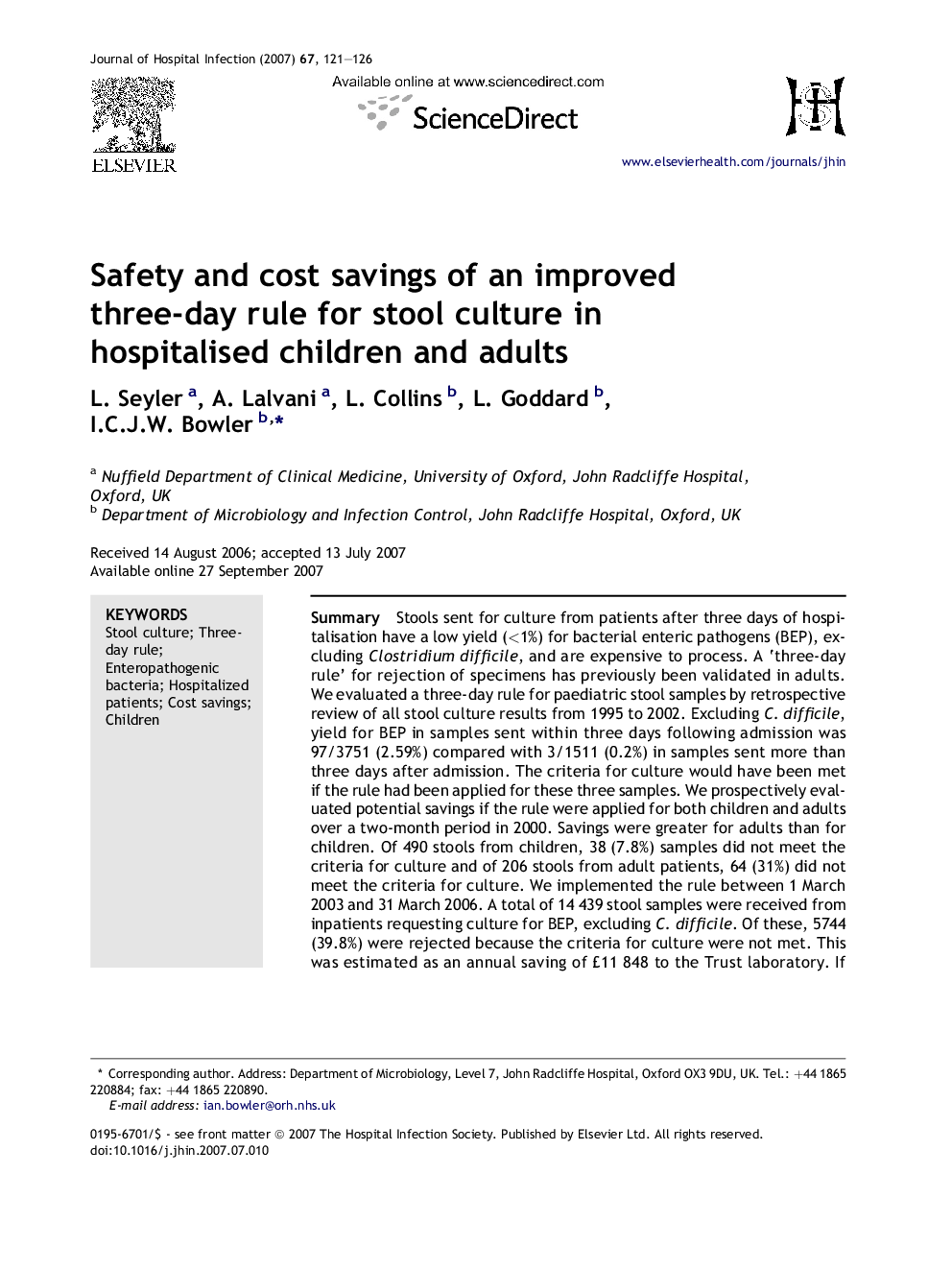| Article ID | Journal | Published Year | Pages | File Type |
|---|---|---|---|---|
| 3373653 | Journal of Hospital Infection | 2007 | 6 Pages |
SummaryStools sent for culture from patients after three days of hospitalisation have a low yield (<1%) for bacterial enteric pathogens (BEP), excluding Clostridium difficile, and are expensive to process. A ‘three-day rule’ for rejection of specimens has previously been validated in adults. We evaluated a three-day rule for paediatric stool samples by retrospective review of all stool culture results from 1995 to 2002. Excluding C. difficile, yield for BEP in samples sent within three days following admission was 97/3751 (2.59%) compared with 3/1511 (0.2%) in samples sent more than three days after admission. The criteria for culture would have been met if the rule had been applied for these three samples. We prospectively evaluated potential savings if the rule were applied for both children and adults over a two-month period in 2000. Savings were greater for adults than for children. Of 490 stools from children, 38 (7.8%) samples did not meet the criteria for culture and of 206 stools from adult patients, 64 (31%) did not meet the criteria for culture. We implemented the rule between 1 March 2003 and 31 March 2006. A total of 14 439 stool samples were received from inpatients requesting culture for BEP, excluding C. difficile. Of these, 5744 (39.8%) were rejected because the criteria for culture were not met. This was estimated as an annual saving of £11 848 to the Trust laboratory. If extrapolated to all NHS Trusts, the potential savings could be in the order of £1.18 million annually.
